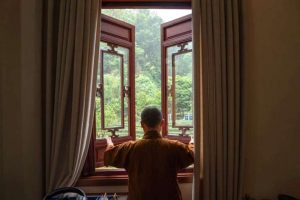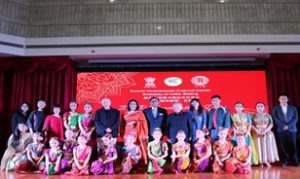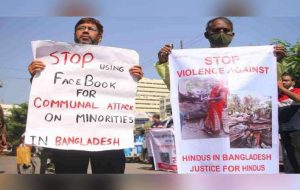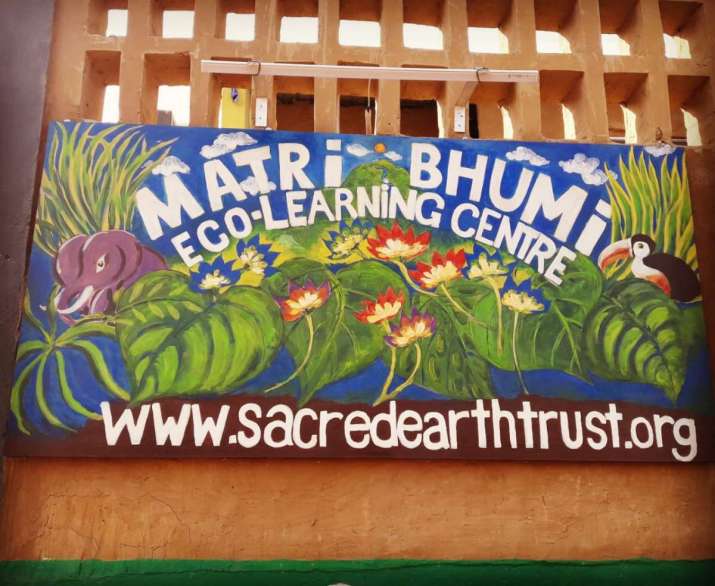
The Matri Bhumi Eco-Learning Centre opened in Bodh Gaya this month with an inauguration on 14 November that was attended by Yongey Mingyur Rinpoche, Nangzey Dorje of the Bodh Gaya Temple Management Committee, and Sister Shobha of Pragya Vihar School.
International and local guests attended the inauguration, including young women and schoolchildren who will benefit from the activities and education programs the center will provide.
The center is a project by the Sacred Earth Trust (SET), a Bihar-based non-profit focused on education and sustainability in the heartland of Buddhism. The SET has engaged in teacher training, permaculture courses, women’s empowerment sewing projects, building toilets for women in the poor villages, and tree planting around the Bodh Gaya area. Since its founding in 2009, its major objective has been to focus on reducing plastic pollution through teaching sustainability and up-cycling.
Throughout its decade of educational activities, outreach projects, and the development of the Matri Bhumi Eco-Learning Centre, the SET has been supported by various individuals and organizations like the UN Development Program, Global Environmental Facility, and Centre for Environmental Education in New Delhi.
SET founder Lillian Sum told Buddhistdoor Global: “The attendees were asked to reflect and write their aspirations for planet Earth and put them inside the stuffed plastic bottle bricks for their contribution toward the opening day and to support our Eco-Learning Centre. The bottles were then made into a bench next to a flower tree planted by our special guest, Yongey Mingyur Rinpoche.”
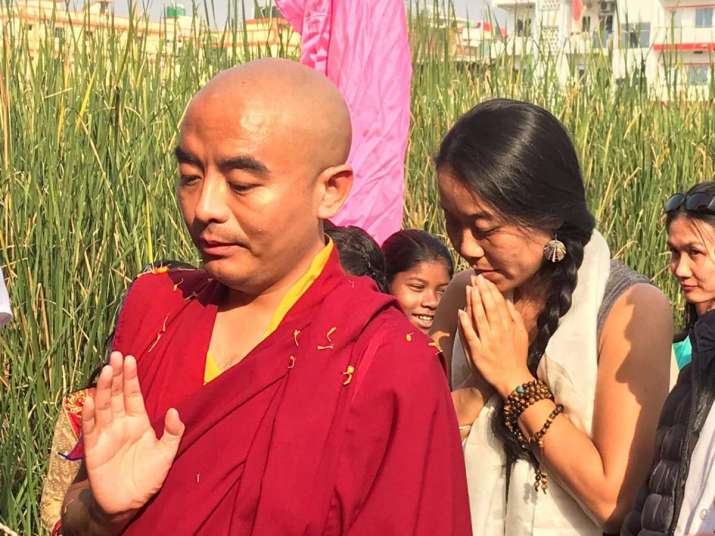
The inauguration also held a live demonstration of making compressed plastic blocks and affordable earthquake-resilient technologies. Workshops were also given on bamboo earth, “earth-bags” construction, zero-waste solutions, water filtration systems, less wasteful irrigation techniques, and gardening.
“The next phase will be to engage local schools and teachers in environmental education focusing on disseminating knowledge on practical solutions through creative learning workshops,” said Lillian. “We will develop an online portal to engage and link local communities and schools. We will invite specialists in various fields of ecology and solutions based approaches for dialogue. We plan to host even more workshops to explore expertise and solutions for the practical development of surrounding communities around Bodh Gaya.”
“The activities we host at our Eco-Learning Centre are worthy exercises in mindfulness about the needs of nature and the underprivileged in Bodh Gaya, Bihar, and beyond,” she explained. “They address how we can be part of a virtuous cycle of cause and effect for our actions, and how we can transform from harming the planet to being of benefit to ourselves, others, and future generations. The planet’s pollution and climate change issues require a multi-level approach to be effectively ameliorated. Finally, as a Buddhist community we can be proactive and collaborate with non-profits and social entrepreneurships to reduce and eventually neutralize local sources of pollution.”
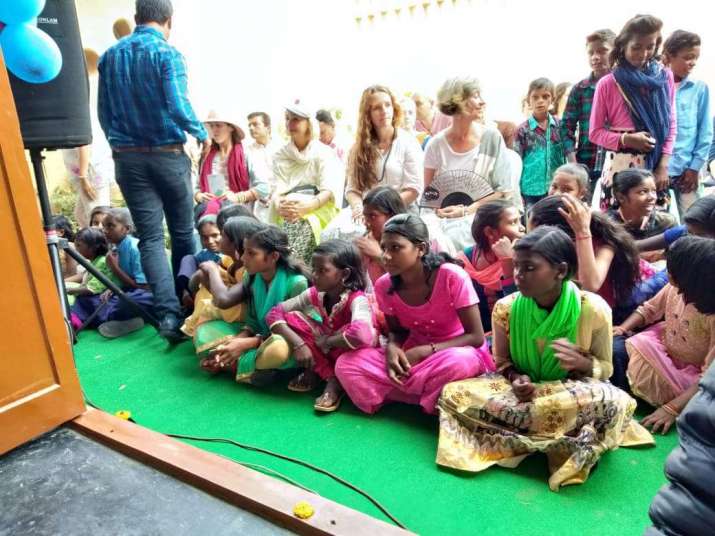
Bihar is the most recent state in India to become plastic free, and from 16 December it will become a criminal offence to use disposable plastics such as bags, straws, and cups. Lillian has also invited organizations to partner with Sacred Earth Trust.
“Soon, on multiple platforms, we will be sharing with a wider audience ecologically sustainable solutions which can be adopted locally and globally,” she said. “We welcome collaboration and partnerships to work with us to transform Bodh Gaya.”
See more
Sacred Earth Trust








